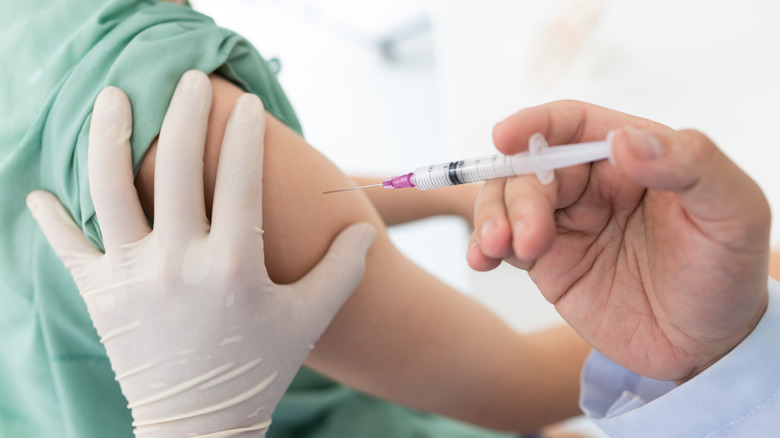The Surprising Result Of Getting Two Different COVID-19 Vaccines
We are learning more about COVID-19 vaccines each day, with The New York Times reporting 3 billion doses have been administered worldwide as of June 29, 2021. The shots are proving to be incredibly effective in protecting people from the virus, even against the latest delta variant (via Medical News Today).
Currently, there are three approved vaccines available in the United States — the Pfizer vaccine, the Moderna vaccine, and the Johnson & Johnson version. Meanwhile, in Europe, another option is currently available, made by AstraZeneca. Prevention reports it may be coming to America soon incidentally.
In the meantime, NBC News reports on a fascinating study to come out of Oxford. The research found that mixing and matching vaccines from different companies produced a very surprising result — and it is not what you might expect, given the meticulous guidelines around vaccines, such as how far apart the doses should be spaced.
Researchers found mixing vaccines was surprisingly effective
According to WebMD, the AstraZeneca vaccine was linked to rare blood clots, which prompted medical professionals to offer people in Europe an alternative when it came time for them to receive their second doses.
And what they found was encouraging, for as NBC News reports, a combined schedule of the AstraZeneca and Pfizer vaccines lead to a high concentration of antibodies. "It's certainly encouraging that these antibody and T-cell responses look good with the mixed schedules," Oxford professor Matthew Snape, who was behind the trial, said.
In fact, mixing the two vaccines was more effective than two doses of the AstraZeneca shots, according to the research. This was regardless of the order in which the shots were given, according to CBS News.
The takeaway? There may be more flexibility in administering vaccines than previously thought, although Snape was quick to note his study may be too small for a broad interpretation, given it looked at 830 participants.

